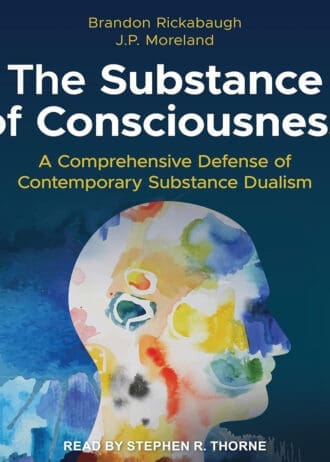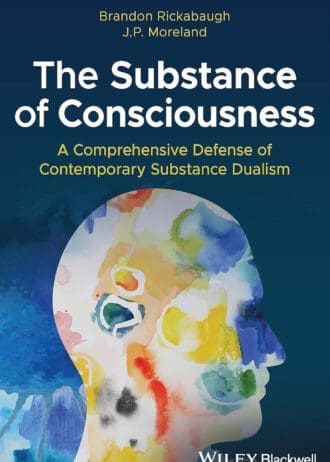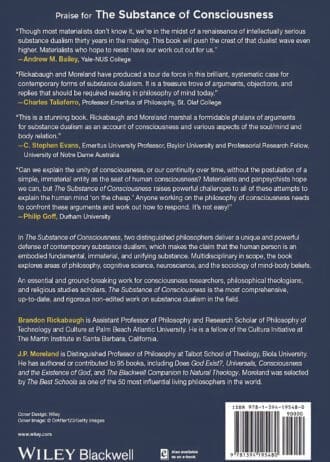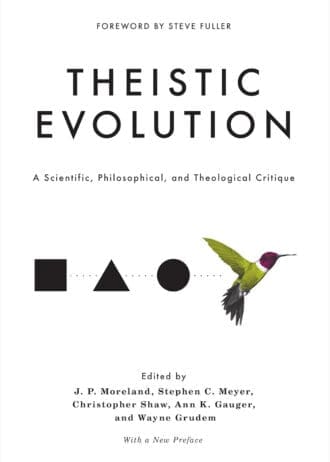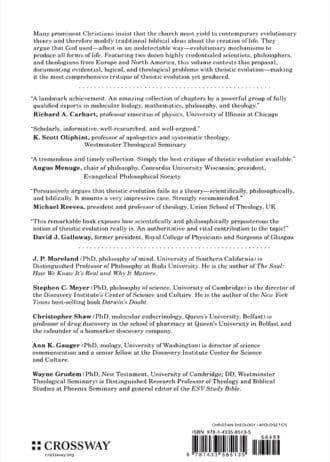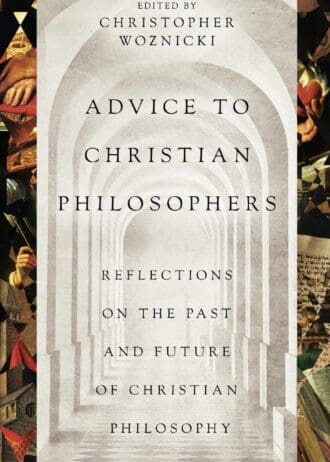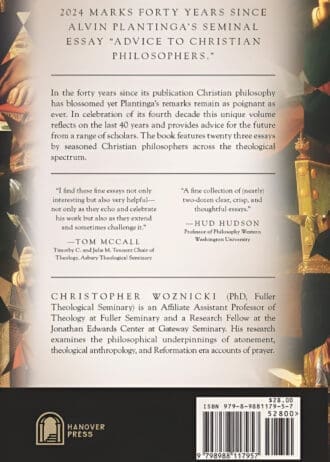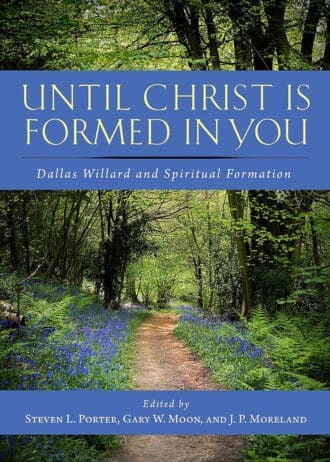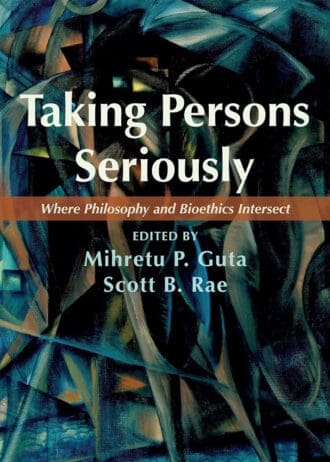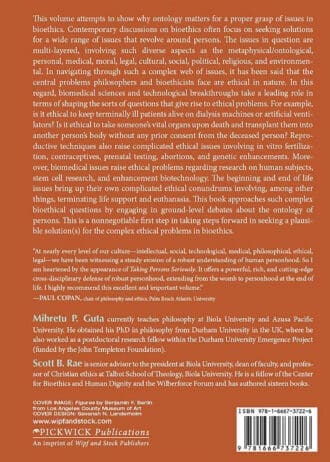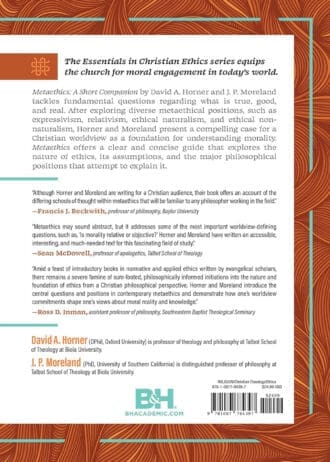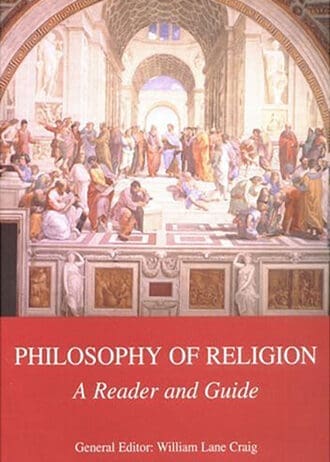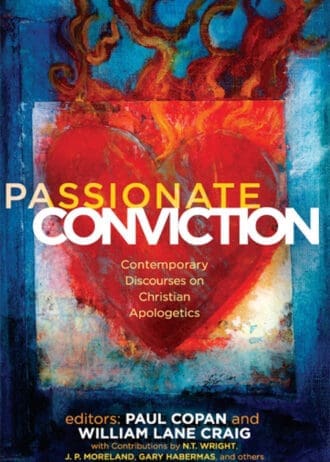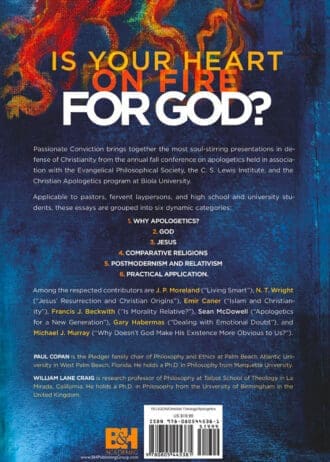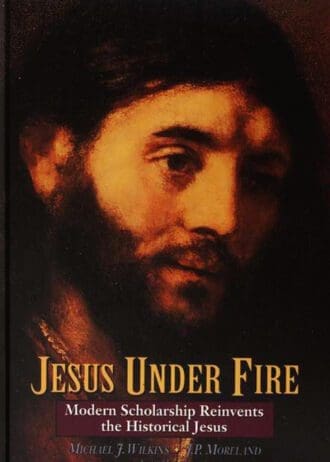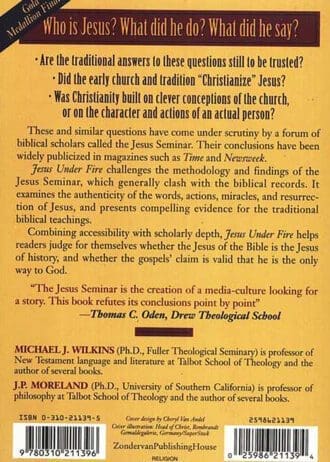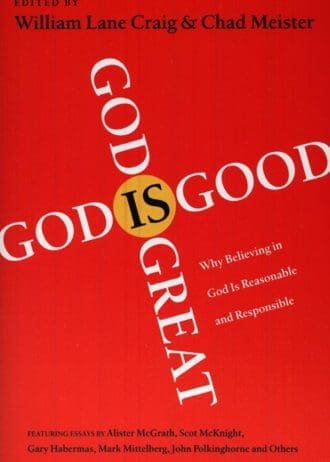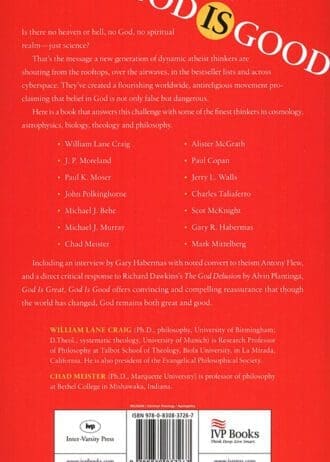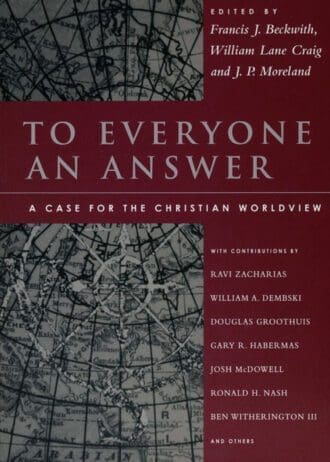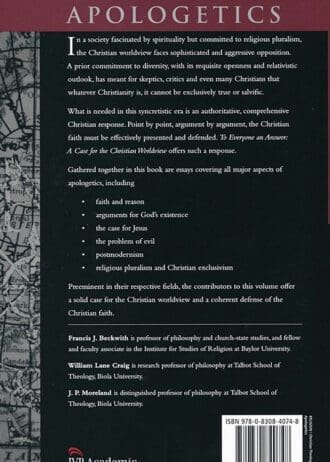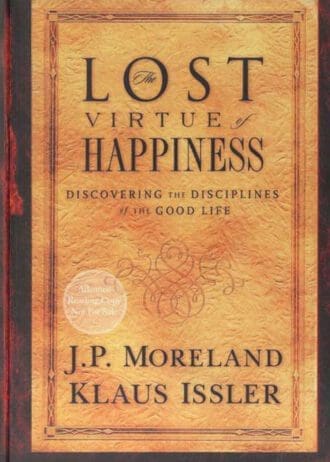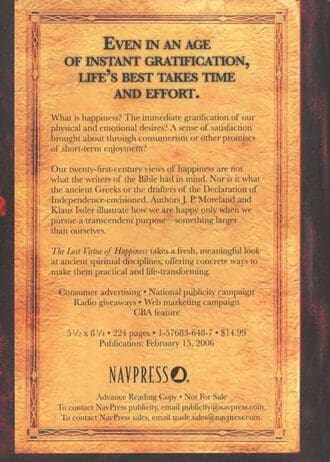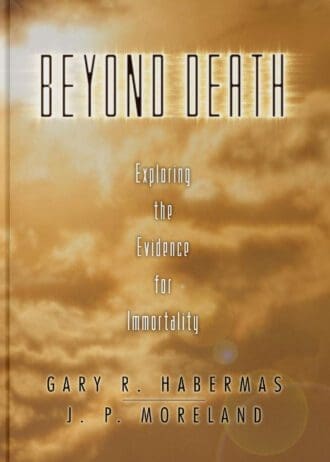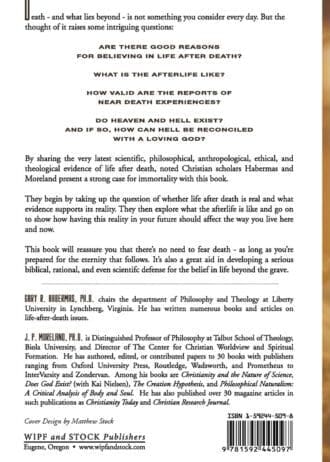Browse books, e-books, audiobooks, and studies by J.P. Moreland. Click here to learn more about the author.
The Substance of Consciousness: A Comprehensive Defense of Contemporary Substance Dualism – Audiobook
In The Substance of Consciousness: A Comprehensive Defense of Contemporary Substance Dualism, two distinguished philosophers deliver a unique and powerful defense of contemporary substance dualism, which makes the claim that the human person is an embodied fundamental, immaterial, and unifying substance. Multidisciplinary in scope, the book explores areas of philosophy, cognitive science, neuroscience, and the sociology of mind-body beliefs. The authors present the most comprehensive, up-to-date, and rigorous non-edited work on substance dualism in the field, as well as a detailed history of how property and substance dualism have been presented and evaluated over the last 150 years. Alongside developing new and updated positive arguments for substance dualism, they also discuss key metaphysical notions and distinctions that inform the examination of substance dualism and its alternatives.
The Substance of Consciousness: A Comprehensive Defense of Contemporary Substance Dualism
In The Substance of Consciousness: A Comprehensive Defense of Contemporary Substance Dualism, two distinguished philosophers deliver a unique and powerful defense of contemporary substance dualism, which makes the claim that the human person is an embodied fundamental, immaterial, and unifying substance. Multidisciplinary in scope, the book explores areas of philosophy, cognitive science, neuroscience, and the sociology of mind-body beliefs. The authors present the most comprehensive, up-to-date, and rigorous non-edited work on substance dualism in the field, as well as a detailed history of how property and substance dualism have been presented and evaluated over the last 150 years. Alongside developing new and updated positive arguments for substance dualism, they also discuss key metaphysical notions and distinctions that inform the examination of substance dualism and its alternatives.
Theistic Evolution: A Scientific, Philosophical, and Theological Critique
Many prominent Christians insist that the church must yield to contemporary evolutionary theory and therefore modify traditional biblical ideas about the creation of life. They argue that God used―albeit in an undetectable way―evolutionary mechanisms to produce all forms of life. Featuring two dozen highly credentialed scientists, philosophers, and theologians from Europe and North America, this volume contests this proposal, documenting evidential, logical, and theological problems with theistic evolution―making it the most comprehensive critique of theistic evolution yet produced.
Advice to Christian Philosophers: Reflections on the Past and Future of Christian Philosophy
2024 marks forty years since Alvin Plantinga’s seminal essay Advice to Christian Philosophers. In the forty years since its publication Christian philosophy has blossomed yet Plantinga’s remarks remain as poignant as ever. In celebration of its fourth decade, Hanover Press is pleased to publish a unique volume reflecting on the last 40 years and providing advice for the future from a range of scholars. The book features twenty-three essays by seasoned Christian philosophers across the theological spectrum.
Twelve chapters are written by people who teach at Talbot – Greg Ganssle, JP Moreland, William Lane Craig, and Tim Pickavance
Talbot M.A. Philosophy – Charity Anderson, Michael Austin, Paul Gould, Ross Inman, and Josh Rasmussen
Biola B.A. – Adam Green, Tom Ward, Eric Yang
Biola M.A. – Joshua L Rasmussen
Until Christ Is Formed in You: Dallas Willard and Spiritual Formation
At a popular level, Dallas Willard wrote with remarkable clarity about spiritual formation. But his writings also addressed academic concerns such as shifts in modern moral philosophy, the nature of education, and the psychology of the human self. Until Christ Is Formed in You brings together ten authors who knew Willard well to introduce his wide-ranging vision and consider again the overall signi cance of this one-of-a-kind teacher.This collection explores topics including the Beatitudes, the relationship of body and soul, the kingdom of God, discipleship to Jesus, the nature of formation, and Ignatian spirituality. The book begins with a comprehensive overview of Willard’s understanding of formation, and it concludes with practical applications of this understanding to the disciplines of psychology and counseling.
Taking Persons Seriously: Where Philosophy and Bioethics Intersect
This volume attempts to show why ontology matters for a proper grasp of issues in bioethics. Contemporary discussions on bioethics often focus on seeking solutions for a wide range of issues that revolve around persons. The issues in question are multi-layered, involving such diverse aspects as the metaphysical/ontological, personal, medical, moral, legal, cultural, social, political, religious, and environmental. In navigating through such a complex web of issues, it has been said that the central problems philosophers and bioethicists face are ethical in nature. In this regard, biomedical sciences and technological breakthroughs take a leading role in terms of shaping the sorts of questions that give rise to ethical problems. For example, is it ethical to keep terminally ill patients alive on dialysis machines or artificial ventilators? Is it ethical to take someone’s vital organs upon death and transplant them into another person’s body without any prior consent from the deceased person? This book approaches such complex bioethical questions by engaging in ground-level debates about the ontology of persons. This is a nonnegotiable first step in taking steps forward in seeking a plausible solution(s) for the complex ethical problems in bioethics.
Metaethics: A Short Companion (Essentials in Christian Ethics)
In Metaethics: A Short Companion, David A. Horner and J. P. Moreland provide a primer on how to think about questions surrounding the concept of morality—its nature, status, grounding, underlying presuppositions, and philosophical commitments. From a stance rooted in moral realism, Horner and Moreland explore and evaluate the major metaethical positions on offer in the field, including expressivism, error theory, relativism, constructivism, ethical naturalism, and ethical nonnaturalism. They conclude by arguing for the rationality of a Christian worldview as a guiding metaethical position. Metaethics: A Short Companion offers a clear and concise introduction to the key concepts and debates in metaethics, providing readers with a foundation for reflecting on their own ethical beliefs and practices.
Philosophy of Religion: A Reader and Guide
This important new volume is a combined anthology and guide intended for use as a textbook in courses on the philosophy of religion. It aims to bring to the student the very best current work on important topics in the field. The anthology is comprised of six sections, each of which opens with a substantive introductory essay followed by a selection of influential writings by prominent philosophers of religion. Philosophy of Religion provides an ideal resource for studying the central questions raised by religious belief.
Passionate Conviction: Contemporary Discourses on Christian Apologetics
Passionate Conviction brings together the most popular and heart-stirring presentations in defense of Christianity from the annual fall conference on apologetics held in association with the Evangelical Philosophical Society, the C. S. Lewis Institute, and the Christian Apologetics program at Biola University. Applicable to pastors, serious-minded lay people, and university and high school students, these twenty essays are grouped into six dynamic categories: (1) Why Apologetics? (2) God (3) Jesus (4) Comparative Religions (5) Postmodernism and Relativism (6) Practical Application.
The Apologetics Study Bible
The Apologetics Study Bible helps today’s Christians better understand, defend, and proclaim their beliefs in this age of increasing moral and spiritual relativism. More than one-hundred key questions and articles placed throughout the volume about faith and science prompt a rewarding study experience at every reading. Highlights of this thinking person’s edition of God’s Word include the full text of the popular HCSB translation, an introduction to each Bible book focusing on its inherent elements of apologetics, and profiles of historic Christian apologists from Justin Martyr to C.S. Lewis.
Jesus Under Fire: Modern Scholarship Reinvents the Historical Jesus
Jesus Under Fire challenges the methodology and findings of the Jesus Seminar, which generally clash with the biblical records. It examines the authenticity of the words, actions, miracles, and resurrection of Jesus, and presents compelling evidence for the traditional biblical teachings. Combining accessibility with scholarly depth, Jesus Under Fire helps readers judge for themselves whether the Jesus of the Bible is the Jesus of history, and whether the gospels’ claim is valid that he is the only way to God.
God Is Great, God Is Good: Why Believing in God Is Reasonable and Responsible
The aggressive assault on religion, and particularly Christianity, by the “New Atheism” has reached through the airways, and across the web. Writers such as Christopher Hitchens and Richard Dawkins have been as aggressive as they have been virulent against religion. But can their objections and arguments be answered? That is the purpose of the multi-faceted book of essays, God is Good, God is Great: Why Believing in God is reasonable and Responsible written by leading scholars in cosmology, astrophysics, biology, theology, and philosophy including Alister McGrath, Scot McKnight, Gary Habermas, John Polkinghorne, J.P. Moreland, William Lane Craig, and Michael Behe, this book answers to the tough questions and engages the difficult answers.
To Everyone an Answer: A Case for the Christian Worldview
In a society fascinated by spirituality but committed to religious pluralism, the Christian worldview faces sophisticated and aggressive opposition. What is needed in this syncretistic era is an authoritative, comprehensive Christian response. Point by point, argument by argument, the Christian faith must be effectively presented and defended. To Everyone an Answer: A Case for the Christian Worldview offers such a response. Preeminent in their respective fields, the contributors to this volume offer a solid case for the Christian worldview and a coherent defense of the Christian faith.
The Lost Virtue of Happiness: Discovering the Disciplines of the Good Life
Authors J. P. Moreland and Klaus Issler illustrate how we are only happy when we pursue a transcendent purpose–something larger than ourselves. This pursuit involves a deeply meaningful relationship with God through a selfless preoccupation with the spiritual disciplines. The Lost Virtue of Happiness takes a fresh, meaningful look at the spiritual disciplines, offering concrete examples of ways you can make them practical and life-transforming.
Beyond Death: Exploring the Evidence for Immortality
Death – and what lies beyond – is not something you consider every day. But the thought of it raises some intriguing questions: Are there good reasons for believing in life after death? What is the afterlife like? How valid are the reports of near death experiences? Do heaven and hell exist? And if so, how can hell be reconciled with a loving God? By sharing the very latest scientific, philosophical, anthropological, ethical, and theological evidence on life after death, noted Christian scholars Habermas and Moreland present a strong case for immortality with this book. They begin by taking up the question of whether life after death is real and what evidence supports its reality. They then explore what the afterlife is like and go on to show how having this reality in your future should affect the way you live here and now. This book will reassure you that there’s no need to fear death – as long as you’re prepared eternity that follows. It’s also a great aid in developing a serious biblical, rational, and even scientific defense for the belief in life beyond the grave.

